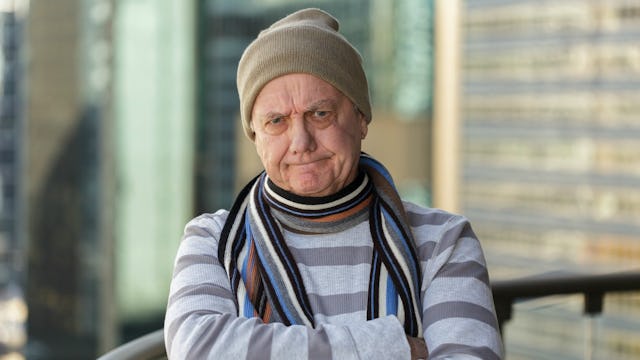You Need To Call Out Your Racist Relatives. Even Grandpa.

I grew up hearing racial slurs from my father. His racism was a norm in my household; I knew I shouldn’t use the n-word outside the house, but other than that, I had no idea of its power to wound, its utter dismissal.
I was not immune. I was not innocent. I did not grow up some miraculous warrior for social justice. I was not born aware of white privilege. I heard older family members deride Martin Luther King, Jr.; the MOVE bombings only scratched the surface of a toxic racial bitterness lurking in the white heart of Eastern Pennsylvania.
I want to be able to say that there was one incident I saw, one thing that sticks out, one thing I can point to that says: HERE. Here is a time I saw racism and I did not take a stand. Here is a time I saw racial hatred, as a child or as an adult, and I kept my white silence and my white complicity. But I cannot. Because there is a lifetime of these incidents, over and over, stretching through my childhood and into early adulthood. From my father. From my friends.
I was afraid to say anything.
Because you can lecture your racist father over and over, but how do you stop him from baiting you? When the n-word got old, when my brother and I kept shouting him down, he transferred his ridicule to those of Italian heritage. By that time, we were tired. He’d rant about how “they” ruined the town, how “they“ just kept popping out babies and living on welfare, the old saw: there are white people and there are white trash and there are black people and there are (insert n-word here). And I just got tired. And I gave up. The words flowed like a bitter stream I no longer tried to dam. And he grinned, and grinned, and grinned, because he’d won.
And how do you stop your beloved grandparents, whom you respect and adore, from using the n-word, from saying “colored,” from the good old rants about what a mess they have made of our town? You think: they are old. They are set in their ways. You love them, you respect them. You don’t want to start a fight, and whose mind will you change, anyway, you think. No one’s mind. You’re not going to make granddad “woke,” you’re just going to piss him off. So you sit and you listen to those toxic words, those toxic rages, out of some kind of fucked up respect for the elderly. Every white person I know has done it, and if they say they haven’t they’re a liar. The n-word slides when it comes from the mouths of our elders.
Or you’re in college. You’re with friends. And a black woman walks across the parking lot in front of you. Your friend is driving, and she is pissed off. “Oh come on, come on,” she hisses. “God, they think they own the road. Like we owe them something.” This comes from the mouth of white people you know, white people you love, white people you trust, white people who are horrified by the n-word. And you let it go, because, you think, I don’t want to fight right now. I don’t want to deal with this massive baggage of racism and entitlement and bone-deep hate, and you keep your silence.
Or a black person is late for something. White people can be late. Black people cannot. Because when a white person is late, there was a train, or a missed bus, or no parking spots. When a black person is late, someone will nudge another. “CPT,” they’ll say, and the other person will giggle and nod. CPT. Colored People’s Time. And you will think, do I want to stand in front of a group of people and call them out for their racism, which is pretty much the worst thing you can say to anyone these days, thus becoming a permanent pariah, or do I want to shut up and look the other way?
You shut up and look the other way.
Because it keeps your peace.
Because it keeps the social fabric unwrinkled, smoothed.
But mostly, because you are afraid.
You are complicit. You let it happen. Every day, every remark, we let it happen. We let it grow. We let racism fester. We feed the cancer instead of cutting it out, as if we are afraid it’s too close to a major artery, as if we can’t imagine how the patient will function afterwards.
We feed racism. We let it live.
Because, white people, we are afraid of one another.
This article was originally published on